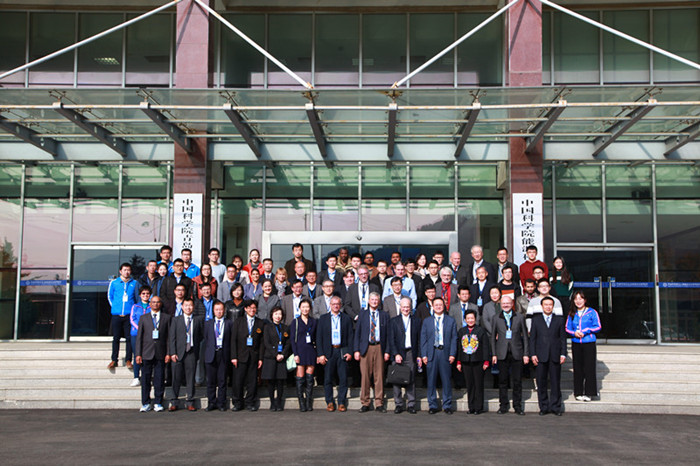Combining biology and engineering, synthetic biology has drawn much attention in recent years, both from the research fields, and from the industry. Now, scientists, university scholars and industry representatives from around the world are gathering in east China’s Qingdao city to discuss driving new growth with synthetic biology.
More than 200 delegates from universities, research institutes, multinational enterprises, hi-tech enterprises and scientific and technological organizations from the United States, Germany, Japan, South Korea, as well as other countries along the “Belt and Road”, attended the 2018 Qingdao International Technology Transfer Conference - Synthetic Biology Workshop held on November 14.
Organized by the Qingdao Institute of Bioenergy and Bioprocess Technology (QIBEBT) of the Chinese Academy of Sciences, the workshop focuses on the relationship between synthetic biotechnology and four major fields: resource and environment, energy and chemindustry, pharmaceutics and health, and method and technology.
“It provides a professional information exchange and technology matchmaking platform for academics, technology owners, local enterprises and scientific and technological service organizations,” said LU Xuefeng, deputy director of the QIBEBT.
QIBEBT and Chiang Mai University in Thailand renewed their decade cooperation agreement to build a "Green Biotechnology Cooperation Center" at the workshop.
The center will focus on development of clean energy and natural products and continue promoting the demonstration and industrial promotion of bioenergy, such as cellulosic ethanol, bio-aviation oil and bio-natural gas through co-construction of technological platforms and joint training of scientific and technological talents.
Chiang Mai University has cooperated with QIBEBT for about ten years. Both sides have four projects joint together. “In the future, our cooperation will be upgraded to a new platform. We will also make in-depth explorations in high value-added chemicals to further solve the problem of agricultural residue waste in Thailand,” said Sujinda Sriwattana, Dean of Chiang Mai University.
A “synthetic biotechnology international partnership" was also initiated to promote and strengthen the sharing of knowledge and technology among countries along the "Belt and Road". Through partnership network construction between members, they will expand the radiation effect of synthetic biotechnology to industry.
“Recent years, Chinese and German researchers have strengthened academic exchanges and held many workshops,” said Professor Rolf Schmid, Asia science and technology consultant of Baden-Wurttemberg State, “In the field of synthetic biology, QIBEBT is a very important institution in Shandong Province and even in China. German scientific research institutions are also willing to have further work exchanges and experience sharing opportunities with the Chinese researchers.”
Representatives of international well-known enterprises and institutions such as Thermo Fisher, Klein Chemical, Novo Nordisk Foundation, BGI Gene, Vland, and local enterprises, participated the workshop. More than 20 technological projects were selected for technology transfer.
Professor Petr Hladik, head of business development department of technology center of the Czech Academy of Sciences said, “Three years ago, we successfully implemented the technology transfer project in Chengdu. This time, I brought three demonstration of technology transformation. I hope to find a suitable technology transformation partner here through this platform.”
Jointly constructed by QIBEBT and other six local organizations, the Synthetic Biotechnology Innovation Center of Shandong Province was also unveiled at the opening ceremony of the workshop.

(Text by YANG Xutong and CHENG Jing, Image by KONG Fengru)